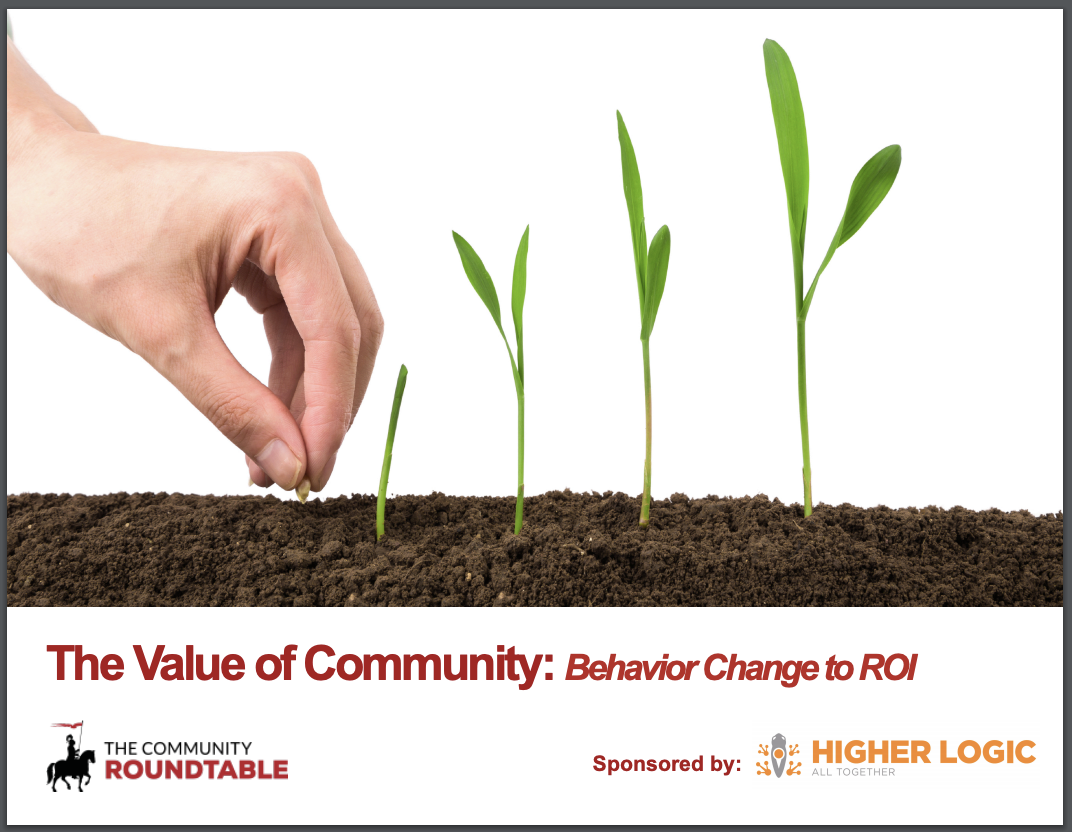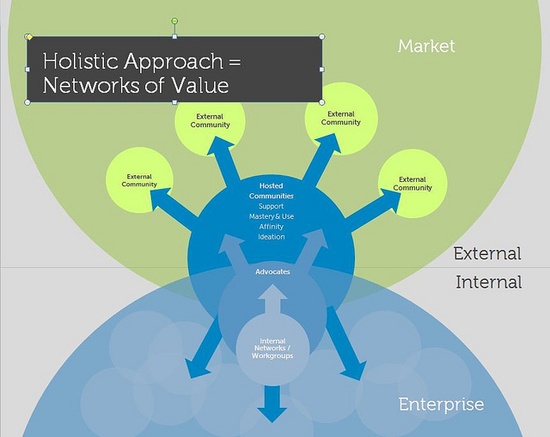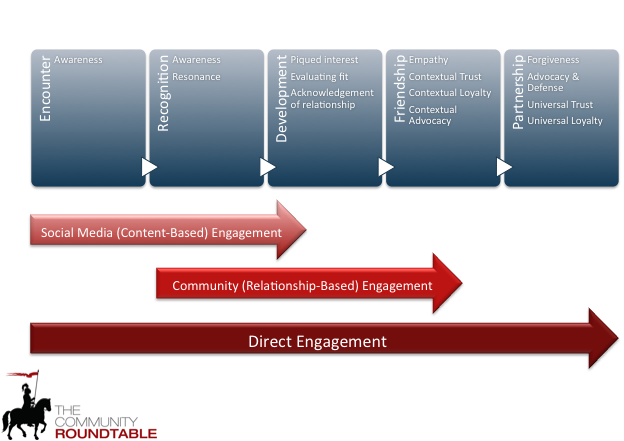Why Do Communities Matter?
Communities matter because they help achieve many business goals more efficiently than transactional approaches.
By crowdsourcing experience within a bounded, vetted online community program, organizations can:
- Extend marketing impact through advocacy
- More effectively support customers through peer sharing
- Quickly ramp-up new employees by giving them access to tacit expertise of peers
- Improve innovation cycles by better connecting market needs and internal expertise
- Reduce duplication by encouraging and enabling employees to easily share their expertise
- More effectively recognizing and rewarding the expertise of customers, employees, and partners
- React more quickly and effectively to crisis
All of these use cases can have enormous benefits to organizations although not all use cases are easy to measure in hard ROI calculations because often the value received from advocacy, collaboration, and innovation is value that money could never buy - the value of an emergent testimonial from a happy customer or the value of an employee going above and beyond to solve a customer issue.
The Value of Community eBook: Behavior Change to ROI
The Community Roundtable produced an eBook on the Value of Community, highlighting the ability of a community approach to help organizations develop sustainable behavior changes that lead to improved ROI. View the eBook below:
When To Use a Community Approach
We've always had the perspective that social media and community approaches need to be integrated but are not the same thing and the reason is in the complexity of the business goal. Social media channels are fantastic for building awareness and getting feedback on what the market wants, but it is challenging to have the organized multidimensional conversations required for collaborating around complex topics.
Communities play a critical role an organization's digital ecosystem by enabling the relationship and trust development required for complex discussions. This chart developed by Bill Jonnston is a great visual of that digital ecosystem and how communities fit both internally and externally in an organization's approach to digital strategy.
In evaluating whether a community approach is right for your organization, consider the following relationship framework that we have developed and the business outcome that you are pursuing. The complexity of your product or service and the complexity of the business goal will determine what approach - or approaches - you will want to take.
Additional perspectives on why communities matter:
- The value of online community, Rachel Mckool and Bryan Person [Audio]
- Establishing The Value Of Online Communities, Richard Millington
- How to Measure the Strategic Value of Online Communities, Telligent
- Measuring the value of online communities and networks of practice for business, Robin Yap
- Adding Value with Online Community, Social Media Today
- The Holy Grail of Engagement and Why Communities Matter, Rachel Happe
More Community Management Resources
 |
 |
 |



